UK solar eclipse 2015: Britain prepares for 'doomsday' darkness
For the first time in 16 years the UK is about to experience a solar eclipse. Here's everything you need to know
A free daily email with the biggest news stories of the day – and the best features from TheWeek.com
You are now subscribed
Your newsletter sign-up was successful
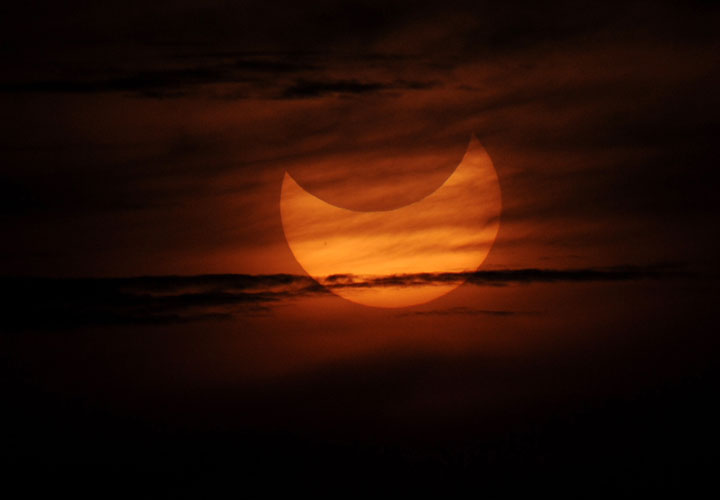
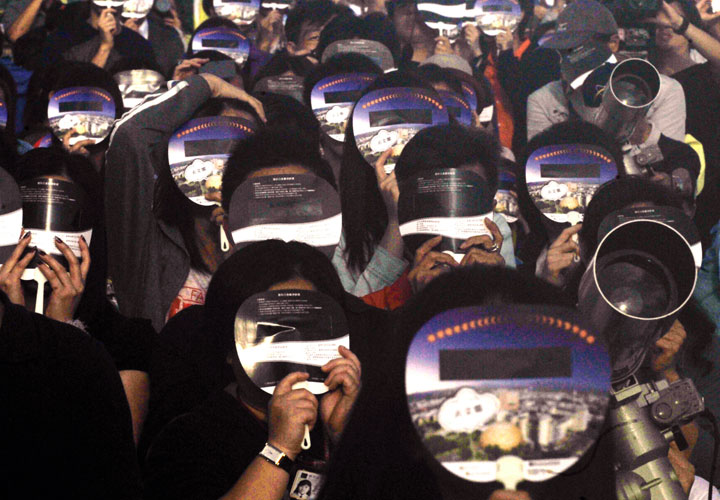
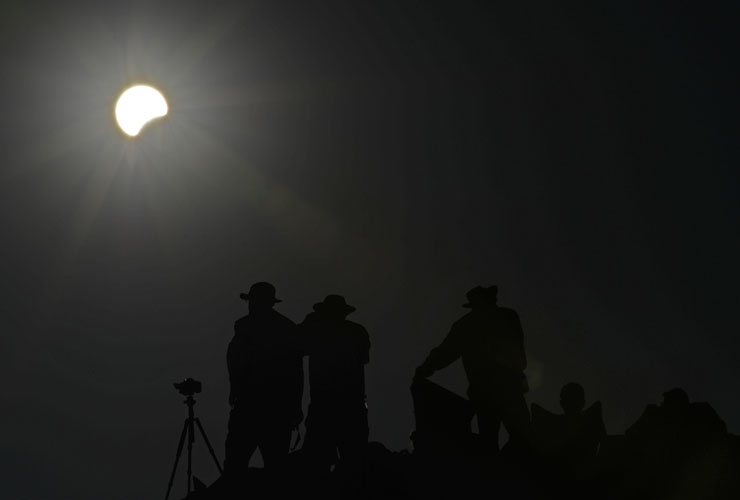
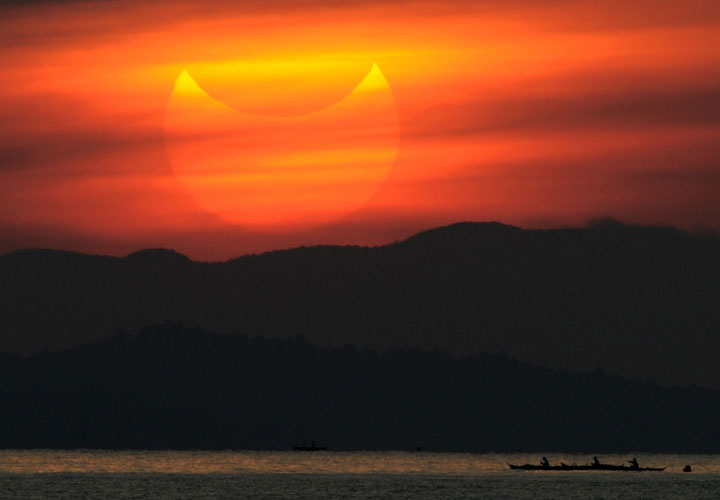
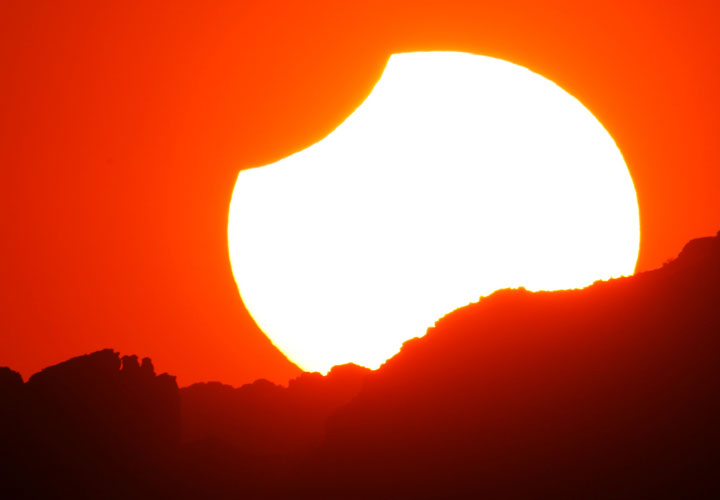
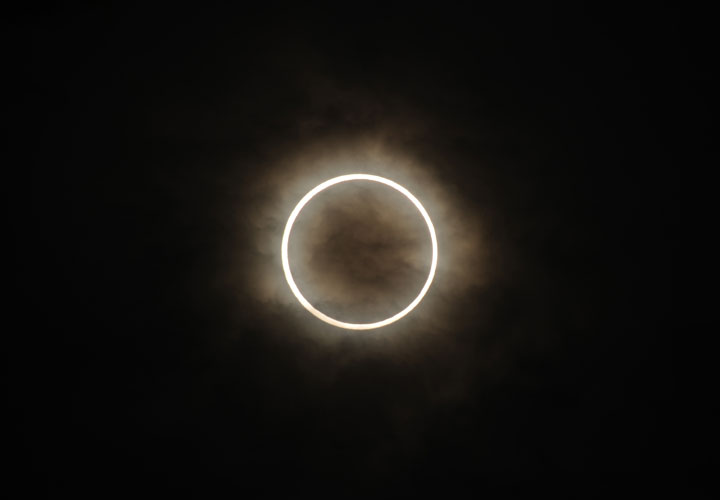
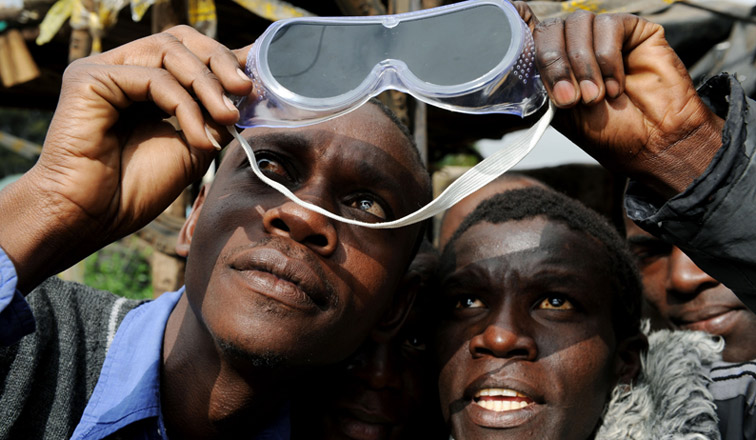
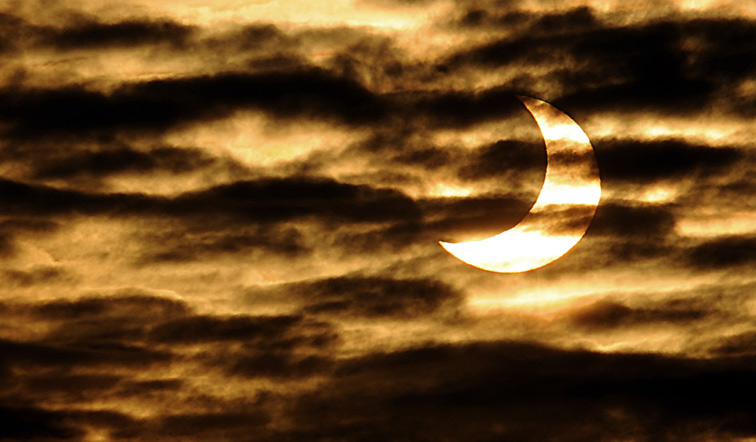
Skies are darkening across the UK this morning as the country witnesses its first solar eclipse since 1999, prompting claims from one pastor that judgement day is nigh.
Mark Biltz said Britain was being singled out by the astronomical event for political and religious reasons.
"When we look at where the darkness will be, it will be in northern European countries like England and Sweden where we see the rise of Islam and anti-Israel sentiment," he told the American news site World Net Daily. "Europeans especially should take heed."
The Week
Escape your echo chamber. Get the facts behind the news, plus analysis from multiple perspectives.

Sign up for The Week's Free Newsletters
From our morning news briefing to a weekly Good News Newsletter, get the best of The Week delivered directly to your inbox.
From our morning news briefing to a weekly Good News Newsletter, get the best of The Week delivered directly to your inbox.
However, the effects of the eclipse will be greatest in the far north-west of Scotland - an area not known for the size of its Muslim population. And most amateur astronomers will be less worried about eternal judgement than by the prospect of low cloud, which threatens to obscure the phenomenon for most observers.
What is a solar eclipse?
Solar eclipses occur when the Moon moves directly between the Sun and the Earth, casting a shadow on the planet's surface. People at the centre of the shaded area experience a total solar eclipse. Those nearer the edge of the shadow see a partial eclipse, which leaves a portion of the Sun visible.
When will the UK solar eclipse take place?
A free daily email with the biggest news stories of the day – and the best features from TheWeek.com
The 2015 solar eclipse occurs this morning, 20 March. In London it coincides with rush hour, beginning at 8.24am and peaking at 9.31am. Areas to the west of London will experience the eclipse slightly earlier (it will peak in Plymouth at 9.25am) and those in the east will see it later (in Norwich, the peak will be at 9.34am).
Also on Friday: the black supermoon
Will the skies be clear?
The weather is not ideal. The best viewing conditions are in Lincolnshire, the Midlands, southern Wales and parts of southwest England, where early fog is clearing. Two bands of cloud are lsitting across areas to the north and south of that diagonal band, although some parts of northeastern Scotland may be lucky enough to get a break in the clouds. Visibility may also be reduced by a cloud of toxic smog due to arrive in the UK from the continent.
Will it be a total eclipse?
Not in the UK, although in the far northwestern parts of the country it will come close. On the west coast of the Isle of Lewis, for example, 98 per cent of the sun's rays will be blocked, and some areas of mainland Scotland will be shaded from 94 per cent of its light, The Independent says. As you move south and east the effect will be diminished, with London and Southampton expecting an 84.5 per cent eclipse. The Faroe Islands and the Norwegian island of Svalbard will experience a total solar eclipse for just over two minutes.
How can I watch it?
Never look directly at the Sun during an eclipse, or you will risk serious eye damage. Experts say you should fashion yourself a pinhole projector, using two sheets of paper and a sharp pin. More dedicated astronomers could use a telescope with special filters. If you want to make the most of the event, you could take an 'eclipse cruise' from Newcastle to the Faroe Islands, to see the sun disappear entirely.
What about solar eclipse glasses?
If you don't want to make a pinhole projector you can use a pair of eclipse glasses instead. There are similar in principle to sunglasses. but have much darker lenses to cut out more of the rays (it's not safe to look at the Sun through ordinary sunglasses). The Independent reports that the glasses are in short supply and in some areas they are "commanding prices of up to £20 as demand surges". The paper also warns people to check that the glasses they buy are stamped with the CE mark, which means they meet EU safety standards.
Is it safe to take photographs of the eclipse?
Camera lenses should be protected with dark filters to ensure that the light sensor isn't damaged by the direct light of the Sun. Photographers should also avoid looking through a camera lens at the Sun without wearing eye protection.
What about solar eclipse selfies?
The College of Optometrists has warned that there are risks associated with taking pictures with either cameras or smartphones during Friday's eclipse. Inadvertently glancing at the Sun while taking shots could lead to burns at the back of the eye, they said, and looking over a shoulder to check that everything is lined up while taking a selfie could also be dangerous. Even looking at the eclipse around the edge of your phone's screen could cause eye damage, they said.
Daniel Hardiman-McCartney, a clinical adviser at the College of Optometrists, said: "In 1999, when there was the last major eclipse, no-one really had smartphones or took selfies. This could potentially be very dangerous because people might be tempted to look at the Sun as they try to get the perfect shot or clip."
He added: "As the eclipse is a relatively slow process, people might end up accidentally looking at the Sun for minutes."
How often do solar eclipses happen?
On average they happen somewhere in the world 2.4 times a year, but this will be the first time the UK has witnessed once since August 1999. That was said to have been the first total eclipse visible in Europe since 22 July 1990, and the first visible in the UK since 29 June 1927. There were smaller, partial eclipses in 2003, 2006, 2008 and 2011. A total eclipse is due to block out the sun throughout the UK, western Europe, west Africa and parts of the Americas on 28 September 2015.
What happens if I miss this one?
There will be a long wait until the next substantial solar eclipse affects the UK. Although a partial eclipse will technically be visible on 21 August 2017, the Moon will barely clip the edge of the Sun and few people without specialist equipment will notice. Slightly darker solar eclipses will be seen in 2021, 2022 and 2025, but the effect of this Friday's event won't be exceeded until the evening of 12 August 2026.
How were solar eclipses explained in the past?
A solar eclipse was often seen as an ill omen, or a sign that something profound had already gone wrong. "People depend on the Sun's movement," EC Krupp, the director of the Griffith Observatory in LA, told National Geographic. "[It's] regular, dependable, you can't tamper with it. And then, all of a sudden, Shakespearean tragedy arrives and time is out of joint. The Sun and Moon do something that they shouldn't be doing."
Many societies created myths to explain the phenomenon, often blaming the disappearance on gods or supernatural beasts consuming the Sun. The Vikings told of two wolves eternally chasing the Sun and Moon, but only rarely catching and trying to consume their prey, which would then manage to escape. Other cultures attempted to turn a solar eclipse into something positive. In Togo it was said that the Sun and Moon were fighting during an eclipse, and people would gather outside and urge them to stop. It was therefore seen as an opportunity to lay old disputes to rest - a tradition which continues today.
Does the modern world have anything to fear from solar eclipses?
Although the event may not be "a message from God to the entire world", as Pastor Biltz claims, it is possible that it will affect our activities. Electricity system operators are warning that the eclipse could cause blackouts across Europe as the continent increasingly relies on solar power. When the last solar eclipse darkened Europe's skies in 1999, the continent derived a tiny fraction of its energy from the Sun. Now, more than 10 per cent of power generated in Europe comes from the Sun, and in some countries the figure is much higher. Germany, Europe's largest economy "now gets more than a quarter of its electricity from renewable generators and like other EU nations is connected with neighbouring countries' grid systems", the Financial Times reports. The European Network Transmission System Operators for Electricity said: "Solar eclipses have happened before but with the increase of installed photovoltaic energy generation, the risk of an incident could be serious without appropriate countermeasures."
Will Britain's power supply be affected by the solar eclipse?
Probably not. The UK gets a relatively small proportion of its energy from solar power, so although the National Grid says that solar power output will halve during the eclipse, it is likely that there will be enough spare capacity in the system to pick up the slack.
